Alex
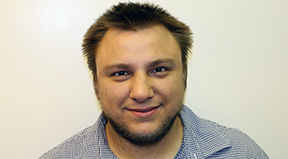
My name is Alex. I’m a student at Rochester Institute of Technology (RIT) where I’m studying Computer Engineering Technology. I enjoy thinking about both the hardware and software side of computing.


My name is Alex. I’m a student at Rochester Institute of Technology (RIT) where I’m studying Computer Engineering Technology. I enjoy thinking about both the hardware and software side of computing.

Work-based learning experiences can help students make career decisions, select courses of study, develop job skills, and network with potential employers. For students with disabilities, work-based learning experiences provide a unique opportunity to explore different, job-related accommodations, and to practice disclosing their disabilities and requesting accommodations from employers.
For many students with disabilities, written assignments and exams present significant difficulties. Mobility impairments may make writing physically difficult, while visual impairments may impact a student's access to standard word processing programs and computers. Research (e.g., accessing library resources) and the writing process (e.g., spelling and grammar) may also be difficult due to mobility, hearing, language, or learning disabilities.
The Internet should be universally accessible, but the multimedia nature of the web and the poor design of some websites make it inaccessible to many users.
Some users:
For many students with disabilities, accessing and using standard computers and electronic resources can be challenging. For example, a student with a spinal cord injury may be unable to use a standard mouse and keyboard.
My name is Samuel. I am studying information technology (IT) at the Rochester Institute of Technology in Rochester, NY. I expect to graduate next year. IT is a mixture of hands-on experience with programming, database, and networking. I chose this major because I know it is good experience and will help me prepare for my career. So far, I’ve taken classes related to programming, databases, multimedia content, and Flash design. I am looking forward to take more courses to gain knowledge and skills. Last summer I interned at Cisco Systems in San Jose, CA for three months.
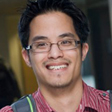
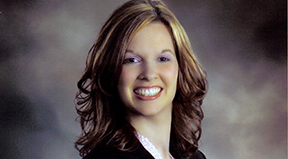
My name is Pamela. I grew up in St. Paul, MN.

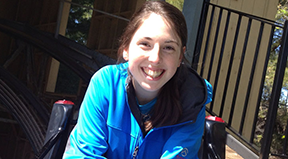
My name is Katie. I am a program manager (PM) for a user experience team at Microsoft. I manage software features, rather than people.
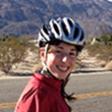
My name is Jason. I earned an Associate of Science in information and computing studies from the National Technical Institute for the Deaf and a Bachelor of Science in information technology with web-database integration from Rochester Institute of Technology. While I was an undergraduate, I had multiple internships including ones at NASA and IBM. Recently, I was accepted into the University of Wisconsin-Milwaukee Masters in computer science program.
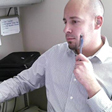
“Is it working?” It sounded as though Minnie Mouse was talking, but I could see clearly that the person across from me was my mother, not an over-sized rodent in polka dots. The phrase was not as dramatic as Alexander Graham Bell’s, “Mr. Watson—come in here,” but for me, it was just as momentous. I was thirteen. As my cochlear implant was activated, those three words were the first I had ever heard clearly. I had just entered high school and this was the crossroads in my journey towards independence in the world and a critical impetus toward pursuing a career in a STEM field.
